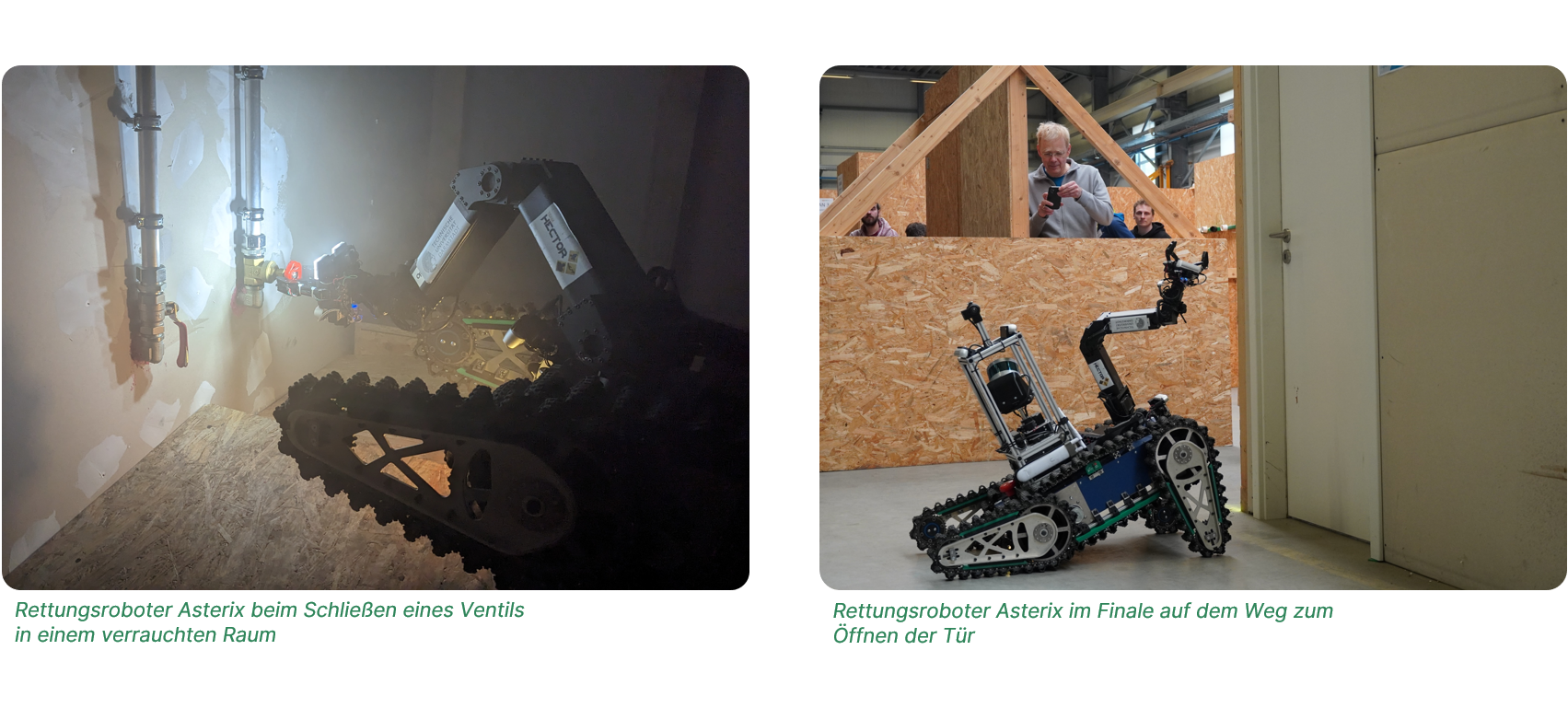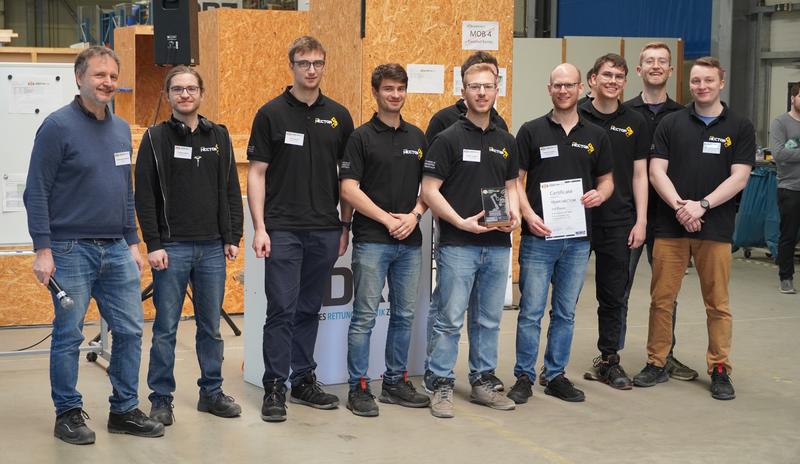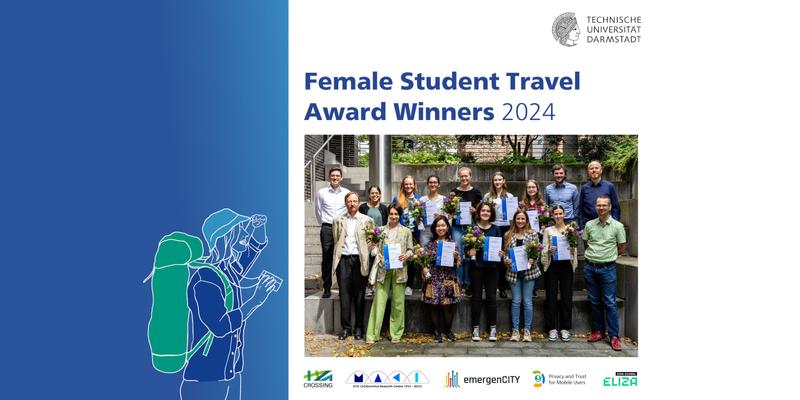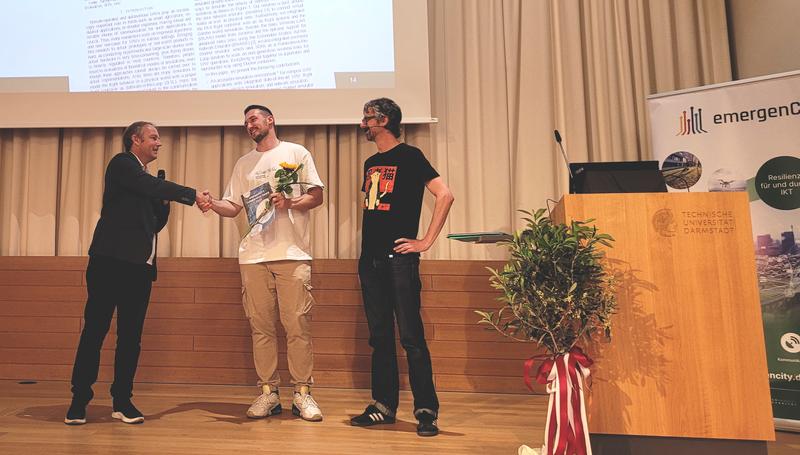Seven teams from Germany, Austria and Switzerland competed this year with their self-developed rescue robotics technologies, which are intended to support first responders in dangerous missions in the future, from April 25 to 27, 2023, in the Living Lab of the German Rescue Robotics Center (DRZ).
The goal of the competition was to test the robots’ capabilities in various categories, such as negotiating difficult terrain, mapping unknown environments, and closing valves and open hazardous material containers in a building area with a simulated fire.
Compared to last year, the missions to be accomplished became more challenging and realistic with additional tasks while overcoming different terrain such as pushing a button or closing a valve.
Team Hector not only secured first place in the overall standings, but also won the categories “Best in Class Autonomy” for the most autonomously completed tasks and “Best in Class Mobility” for the best performance in overcoming difficult terrain. For the first time, it was also able to reliably overcome particularly challenging environments such as stairs and steps of varying heights autonomously. The robot “Asterix” developed at TU Darmstadt is characterized by its high mobility with versatile assistance functions and can, among other things, autonomously explore and map the environment and safely overcome complex terrain.

Team Hector consists of scientific staff and students of the TU Darmstadt, who are working at the department Simulation, System Optimization and Robotics in the Department of Computer Science also on the LOEWE center emergenCITY on the resilience of digital cities, funded by the state of Hesse, as well as on the joint project to establish the German Rescue Robotics Center, funded by the BMBF.
Following this convincing success, the team is preparing for the European ENRICH competition in Austria in June as well as the RoboCup World Championship in Bordeaux in early July.




